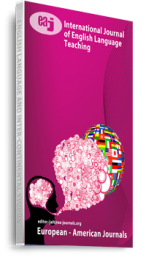The role of first language (L1) use in English as a Foreign Language (EFL) instruction has been a longstanding area of debate in language pedagogy. While monolingual immersion models advocate for minimising L1 use to enhance fluency, bilingual education theories highlight its potential as a cognitive and pedagogical scaffold. This study explores how Libyan university EFL instructors’ perceptions of L1 use have evolved over time, identifying the factors that have influenced shifts in their attitudes and instructional practices. Using a qualitative research approach, semi-structured interviews were conducted with university instructors representing diverse teaching backgrounds and experiences. Thematic analysis revealed a clear transition from an initial acceptance of L1 as a supportive tool to a more cautious and restrictive stance. Concerns about student dependency, institutional expectations, and professional development were found to be key drivers of this shift. However, despite the increasing discouragement of L1, instructors continued to recognise its pedagogical value in specific contexts, particularly for beginner students and when explaining complex grammatical structures. The findings suggest that rigid monolingual policies may not fully align with classroom realities and that a more flexible, research-informed approach could enhance EFL instruction. Implications for teacher training, curriculum development, and institutional policies are discussed, emphasising the need for structured yet adaptable guidelines that allow instructors to use L1 strategically without undermining L2 immersion. This study contributes to the ongoing discourse on bilingual education by advocating for a balanced, context-sensitive approach to L1 integration in EFL instruction.
Keywords: EFL instruction, L1 use, bilingual education, language immersion, teacher perceptions.

